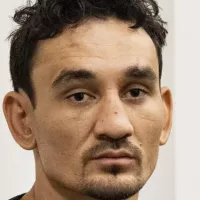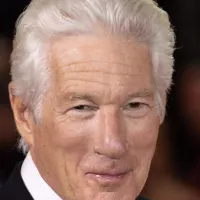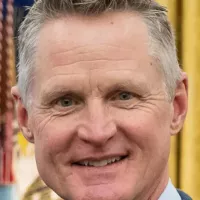Nevada, a landlocked state in the Western US, is the 7th largest, 32nd most populous, but 9th least densely populated. About three-quarters of Nevadans reside in Clark County, home to the Las Vegas–Paradise metro area, which includes three of Nevada's four biggest cities. Nevada's capital is Carson City, while Las Vegas holds the title of the state's largest city.
1900: Silver Strike in Tonopah
A significant silver discovery occurred in Tonopah, Nevada, in 1900, leading to a resurgence in the mining industry and a population boom in the state.
1900
By 1900, Nevada's population had dwindled to the lowest among all states as the challenges of desert living outweighed the initial allure of silver mining for many settlers.
1900: Nevada as a Bellwether State
Since its first presidential election in 1864, Nevada has largely aligned with the national outcome, only deviating from the winning candidate eight times, with most of these instances occurring before 1900.
1909: Clark County Established
Clark County, Nevada, was formed in 1909 from a portion of Lincoln County.
1909: Founding of Clark County
Clark County, home to Las Vegas, has been a stronghold for the Democratic Party since it was founded in 1909, having voted Republican only six times and once for a third-party candidate.
1912: Nevada as a Bellwether State
Since 1912, Nevada has voted for the winning presidential candidate more than any other state (27 out of 29 elections). The only exceptions were in 1976 when Gerald Ford won the state but lost the election, and in 2016 when Hillary Clinton won the state but lost the election.
1919: Nevada Counties
As of 1919, Nevada had 17 counties, varying in size.
March 19, 1931: Outlawing of Unregulated Gambling
In 1909, unregulated gambling, a common feature of early Nevada mining towns, was banned as part of a nationwide campaign against gambling.
January 8, 1937: Record Low Temperature in Nevada
On January 8, 1937, San Jacinto, Nevada, experienced its record low temperature, plummeting to -50 °F (-46 °C).
1940: Nevada's Small Population
In 1940, Nevada had a population of just over 110,000, making it the least populated state in the US, with less than half the population of Wyoming, the next least populated.
1942: Williams v. North Carolina (1942)
In 1942, the Supreme Court case Williams v. North Carolina (317 U.S. 287) ruled that states had to recognize Nevada divorces, solidifying the state's reputation as a "divorce haven".
1945: Williams v. North Carolina (1945)
In 1945, the Supreme Court modified its previous ruling in Williams v. North Carolina (325 U.S. 226), stating that states only needed to recognize Nevada divorces if one party was domiciled in Nevada during the divorce proceedings.
1950: Nevada Birth Rate
Since 1950, the percentage of Nevada-born residents has remained below 27%, the lowest among US states.
January 11, 1951: Establishment of Nevada Test Site
The Nevada Test Site, a vast area used for nuclear weapons testing, was established on January 11, 1951, located approximately 65 miles northwest of Las Vegas.
January 27, 1951: First Nuclear Test at Nevada Test Site
The first nuclear test at the Nevada Test Site took place on January 27, 1951, with a 1 kiloton nuclear bomb detonated at Frenchman Flat.
1960: John F. Kennedy's Victory in Nevada
In the 1960 presidential election, Nevada was one of only three states in the American West won by John F. Kennedy. His victory in the state, however, was a narrow one.
1960: Las Vegas Growth
Las Vegas was America's fastest-growing city and metropolitan area between 1960 and 2000.
July 17, 1962: Last Atmospheric Nuclear Test
On July 17, 1962, the final atmospheric nuclear test was carried out at the Nevada Test Site.
1969: Ormsby County Dissolved
In 1969, the Nevada Legislature dissolved Ormsby County and established the Consolidated Municipality of Carson City within its former boundaries.
1972: Record Low Temperature in Nevada
The coldest temperature ever recorded in Nevada was −52 °F (−47 °C), measured in San Jacinto in 1972.
1975: Introduction of "None of These Candidates" Option
In 1975, Nevada became the first and only U.S. state to offer a "None of These Candidates" option on its ballots for all statewide elections, including those for president, U.S. Senate, and all state constitutional positions. If this option wins a plurality, the candidate with the next highest vote total is elected.
1976: Nevada Votes Against the National Trend
In the 1976 presidential election, Nevada broke from its trend of voting for the ultimate winner, choosing Gerald Ford over Jimmy Carter. This was one of the few instances where the state did not align with the national outcome.
1980: Pahrump Population Growth
From 1980 to 2020, Pahrump, Nevada, experienced rapid population growth.
1980: Non-Hispanic White Population
In 1980, non-Hispanic whites constituted 83.2% of Nevada's population.
1984: Naval Strike Warfare Center Established
The Naval Strike Warfare Center was established at NAS Fallon in 1984.
December 1987
In December 1987, the US Congress designated Yucca Mountain as the sole site for characterizing a permanent repository for the nation's highly radioactive waste, amending the Nuclear Waste Policy Act.
1987: Bullfrog County Formed
In 1987, part of Nye County was separated to create Bullfrog County.
1988: Last Republican Presidential Win in Clark County
The last Republican to carry Clark County was George H. W. Bush in 1988.
1989: Bullfrog County Abolished
Bullfrog County, established in 1987, was abolished in 1989 after its creation was deemed unconstitutional.
1989: UNLV Men's Basketball Ranked Pre-Season No. 1
The UNLV Runnin' Rebels men's basketball team was ranked the Associated Press pre-season No. 1 in 1989-1990 and 1990-1991, a feat only matched by the University of North Carolina.
1990: UNLV Men's Basketball Championship Victory
In 1990, the UNLV Runnin' Rebels men's basketball team, coached by Jerry Tarkanian, won the NCAA Men's Division I Championship, defeating Duke University 103–73. This victory set tournament records for the highest score by a team and the largest margin of victory in the championship game.
1990: Nevada Population Increase
Nevada's population surged by 66% between 1990 and 2000.
1990: UNLV Men's Basketball Ranked Pre-Season No. 1
The UNLV Runnin' Rebels men's basketball team was ranked the Associated Press pre-season No. 1 in 1989-1990 and 1990-1991, a feat only matched by the University of North Carolina.
1991
The Local Government Tax Act of 1991 granted counties in Nevada the ability to impose additional sales tax rates, resulting in variations across the state.
1991: UNLV Men's Basketball Undefeated Season and Final Four Appearance
The UNLV Runnin' Rebels men's basketball team finished the 1991 regular season undefeated, a feat unmatched in Division I men's basketball for over two decades. They reached the Final Four but lost in the national semifinal to Duke University. Forward Larry Johnson received multiple awards, including the Naismith Award.
September 23, 1992: End of Underground Nuclear Testing
Underground nuclear weapons testing at the Nevada Test Site concluded on September 23, 1992, marking a significant event in the site's history.
1993: Base Realignment and Closure
In 1993, a Base Realignment and Closure decision resulted in the transfer of NAS Miramar back to the Marine Corps as MCAS Miramar. Consequently, the Navy Fighter Weapons School (TOPGUN) and the Carrier Airborne Early Warning Weapons School were relocated from NAS Miramar.
June 29, 1994: Record High Temperature in Nevada
Nevada experienced its highest recorded temperature on June 29, 1994, reaching a scorching 125 °F (52 °C) in Laughlin.
July 11, 1996: NSAWC Consolidation
On July 11, 1996, the Naval Strike and Air Warfare Center (NSAWC) consolidated three command centers into a single structure under a flag officer.
1998: Seahawk Weapon School Added
The Seahawk Weapon School was added to NSAWC in 1998 to provide tactical training for Navy helicopters.
2000: Las Vegas Growth
Las Vegas was America's fastest-growing city and metropolitan area between 1960 and 2000.
2000
Nevada voters approved the legalization of medical marijuana in 2000.
2000: Nevada Population Increase
Nevada's population surged by 66% between 1990 and 2000.
2003: Nevada Population Growth
Nevada was the fastest-growing US state in terms of percentage from the 1940s to 2003.
2004: Last Republican Presidential Win in Washoe County
The last Republican to carry Washoe County was George W. Bush in 2004.
January 1, 2006
As of January 1, 2006, there were an estimated 500,000 cattle and 70,000 sheep in Nevada, primarily raised for beef and foraging on rangeland during the summer months.
November 2006: The Nevada Clean Indoor Air Act
In November 2006, Nevada voters enacted "The Nevada Clean Indoor Air Act", a smoking ban that outlawed smoking in most workplaces and public places. The act did make exceptions for establishments such as bars, casinos, and brothels.
December 8, 2006: The Nevada Clean Indoor Air Act
On December 8, 2006, The Nevada Clean Indoor Air Act went into effect, prohibiting smoking in most workplaces and public places. However, the act permitted smoking in bars that did not serve food, bars within casinos, casinos themselves, some hotel rooms, tobacco shops, and brothels.
2006: High Crime Rate in Nevada
In 2006, Nevada's crime rate was about 24% higher than the national average. Property crimes constituted about 85% of the total crime rate, which was 21% higher than the national rate. Violent crimes made up the remaining 20.3%.
2006
In 2006, a referendum to legalize marijuana in Nevada was rejected by voters.
2007
The Great Recession and housing crisis of 2007 contributed to the affordable housing shortage in Nevada.
2007: University of North Carolina Ranked Pre-Season No. 1
The University of North Carolina men's basketball team was ranked the Associated Press pre-season No. 1 in 2007-2008 and 2008-2009, a feat only matched by the UNLV Runnin' Rebels.
2007: Nevada License Plate Design Change
Until 2007, Nevada offered a license plate design featuring the stylized name "Nevăda" with a breve over the 'a' to indicate the preferred local pronunciation.
2008
The 2008 housing crisis further exacerbated Nevada's affordable housing shortage.
2008: University of North Carolina Ranked Pre-Season No. 1
The University of North Carolina men's basketball team was ranked the Associated Press pre-season No. 1 in 2007-2008 and 2008-2009, a feat only matched by the UNLV Runnin' Rebels.
July 1, 2009
Nevada's minimum state sales tax rate was adjusted on July 1, 2009.
2009: Church Attendance Gallup Poll
A 2009 Gallup poll revealed that only 30% of Nevadans reported attending church weekly or almost weekly.
2009
In 2009, Nevada's divorce rate surpassed the national average.
2010
In 2010, the Nevada Legislature implemented term limits for both senators and assembly members, restricting them to a maximum of twelve years in each chamber.
2010: Largest Religious Denominations
In 2010, the largest religious denominations in Nevada were the Roman Catholic Church with 451,070 adherents, The Church of Jesus Christ of Latter-day Saints with 175,149 adherents, and the Southern Baptist Convention with 45,535 adherents.
2010: Largest Native American Tribes Census
The 2010 census provided data on the largest Native American tribes in Nevada.
July 2011: Van Sickle Bi-State Park Opening
Van Sickle Bi-State Park, jointly managed with California, was opened in July 2011.
2011: Minority Population Under Age 1
By 2011, minorities constituted 63.6% of Nevada's population under the age of 1.
2011: Relaxation of Smoking Restrictions
In 2011, Nevada decided to relax some of its smoking restrictions. The changes were limited to establishments that were only open to people aged 21 and older.
2012: State Debt Calculation
In 2012, Nevada's state debt was calculated at $7.5 billion, or $3,100 per taxpayer.
2012: Nevada-Born Residents
In 2012, only 25% of Nevadans were born in the state.
2013
In 2013, an independent study found that solar panel users in Nevada generated a net benefit of $36 million.
2014: Religious Affiliations in Nevada
According to the Pew Research Center, in 2014, the major religious affiliations in Nevada were: Protestant 35%, Irreligious 28%, Roman Catholic 25%, Latter-day Saints 4%, Jewish 2%, Hindu less than 1%, Buddhist 0.5% and Muslim around 0.2%.
2014: Tourism in Clark County
Clark County attracted an estimated 44 million visitors in 2014.
2014: Republican Attorney General Election
In 2014, Republican Adam Laxalt was elected Attorney General in Nevada, despite losing both Clark and Washoe counties. He lost by a small margin due to lower voter turnout in those counties.
2014: Increase in Religiosity
The 2020 study by the Public Religion Research Institute showed a 1% increase in religiosity in Nevada compared to a 2014 Pew study.
May 2015
In May 2015, an educational reform law in Nevada expanded school choice options for 450,000 students, allowing them to use Education Savings Accounts (ESAs) for private school tuition, textbooks, or tutoring.
June 2015: Obergefell v. Hodges
In June 2015, same-sex marriage became legal in Nevada following the landmark U.S. Supreme Court ruling in Obergefell v. Hodges.
December 2015
In December 2015, the Nevada Public Utility Commission allowed NV Energy to increase rates and fees for users of rooftop solar panels, leading to a significant decline in their adoption.
2016: Nevada Votes Against the National Trend
In 2016, Nevada supported Hillary Clinton over Donald Trump, marking another instance where the state's voting pattern diverged from the national outcome. This was one of the few times Nevada did not reflect the overall election result.
2016: Question 2
In 2016, Nevada voters approved Question 2, legalizing the possession, transportation, and cultivation of personal-use marijuana for adults aged 21 and older, and establishing a regulated market for its sale.
2016: Big Sky Conference Tournaments in Reno
In 2016, the Big Sky Conference began holding both its men's and women's basketball tournaments in Reno, Nevada, after decades of hosting them at campus sites.
2016: PBR World Finals Move to T-Mobile Arena
The PBR World Finals, organized by the Professional Bull Riders, moved to T-Mobile Arena in 2016. Prior to the move, the event was held at the Thomas & Mack Center.
2017: Population Growth
Nevada experienced the highest percentage growth in population between 2017 and 2018.
July 1, 2018: Non-Hispanic White Population Estimate
The US Census Bureau estimated that non-Hispanic whites comprised 48.7% of Nevada's population as of July 1, 2018.
December 18, 2018
On December 18, 2018, Nevada achieved a historic milestone by becoming the first state in the US to have a female majority in its legislature.
2018
In 2018, the National Low Income Housing Coalition found a severe shortage of affordable rental homes in Nevada, with only 15 units available for every 100 extremely low-income households.
2018: Population Growth
Nevada experienced the highest percentage growth in population between 2017 and 2018.
2018: Total State Product Estimate
The Bureau of Economic Analysis estimated Nevada's total state product to be $170 billion in 2018.
2018: Las Vegas Aces WNBA Debut
The Las Vegas Aces of the Women's National Basketball Association (WNBA) started playing in 2018 at Mandalay Bay Events Center after moving from San Antonio.
March 5, 2020: First Confirmed COVID-19 Case in Nevada
On March 5, 2020, the first case of COVID-19 was confirmed in Nevada, marking the start of the pandemic's impact on the state.
March 12, 2020: State of Emergency Declared in Nevada
Nevada Governor Steve Sisolak declared a state of emergency on March 12, 2020, in response to growing concerns about the COVID-19 pandemic.
March 17, 2020: Closure of Non-Essential Businesses
Governor Sisolak ordered the closure of non-essential businesses in Nevada on March 17, 2020, as a measure to curb the spread of the coronavirus.
May 9, 2020: Nevada's Phase One Reopening
Nevada initiated the first phase of its reopening plan on May 9, 2020, allowing certain businesses, including restaurants, retailers, outdoor malls, and hair salons, to reopen with safety precautions in place, such as limiting occupancy to 50%.
May 29, 2020: Nevada's Phase Two Reopening
Nevada entered phase two of its reopening on May 29, 2020, permitting the reopening of state parks and businesses like bars, gyms, and movie theaters.
June 4, 2020: Reopening of Casinos in Nevada
Casinos in Nevada were given the green light to reopen on June 4, 2020, marking a significant step towards economic recovery for the state.
2020: Cost of Voting Index Ranking
In 2020, Nevada was ranked 23rd on the "Cost of Voting Index," a study assessing the ease of voting across the United States.
2020: Land Management in Nevada
In 2020, a significant portion (80.1%) of Nevada's land was managed by various U.S. federal government entities, including both civilian and military jurisdictions.
2020: Per Capita Personal Income
Nevada's per capita personal income in 2020 was $53,635, ranking 31st in the nation.
2020: Population Change Since 2020 Census
Since the 2020 census, Nevada's population increased due to a natural increase of 2,374 and net migration of 36,605.
2020: 2020 US Census in Nevada
The 2020 US Census determined Nevada's population to be 3,104,614.
2020: Pahrump Population in 2020 Census
The 2020 census reported a population of 44,738 residents in Pahrump, Nevada.
2020: Las Vegas Raiders NFL Debut
The Las Vegas Raiders of the National Football League (NFL) began playing at Allegiant Stadium in Paradise in 2020 after relocating from Oakland, California.
2020: Christian Population
The Public Religion Research Institute determined that 67% of Nevada's population identified as Christian in 2020.
May 2021: Unemployment Rate
Nevada's unemployment rate was 7.8% in May 2021.
2022: Gold Mining Output
In 2022, Nevada produced 4,040,000 troy ounces (126 t) of gold, valued at $7.3 billion, representing 4% of global gold production.
2022: Nevada Population Estimate
In 2022, Nevada's estimated population was 3,177,772, marking a 2.36% increase since the 2020 census.
2022: Nevada Casino Revenue
In fiscal year 2022, Nevada casinos (excluding those with annual revenue less than a million dollars) generated US$$10.7 billion in gaming revenue and an additional US$$15.7 billion in non-gaming revenue.
2022: Hispanic or Latino Population
The 2022 American Community Survey found that 30.3% of Nevada's population identified as Hispanic or Latino.
2022: Religious Self-Identification Survey
The Public Religion Research Institute's 2022 American Values Survey collected data on religious self-identification.
2027: Oakland Athletics MLB Relocation
The Oakland Athletics of Major League Baseball (MLB) are scheduled to relocate to Las Vegas by 2027.
Mentioned in this timeline

Basketball is a team sport played on a rectangular court...

Donald John Trump is an American politician media personality and...

John F Kennedy JFK was the th U S President...

Hillary Diane Rodham Clinton is an American politician lawyer and...

George W Bush the rd U S President - is...
California is a U S state on the Pacific Coast...
Trending

Jerome Max Keli'i Holloway is an American professional mixed martial artist competing in the UFC's Featherweight and Lightweight divisions A...

4 months ago Muratori wins ITA Regional Singles Championship, Gonzalez runner-up in Doubles, Women's Tennis wraps up

2 months ago Richard Gere and Wife Alejandra Silva Make Rare Red Carpet Appearance in Madrid.

2 months ago Netanyahu Seeks Presidential Pardon Amid Corruption Trial: A Political Maneuver?

2 months ago Olivia Munn Suffered Food Poisoning After Eating Sushi in Bathtub, Vomited at Airport

10 months ago Steve Kerr Addresses Jonathan Kuminga's Fit Within the Warriors After OT Loss.
Popular

Thomas Douglas Homan is an American law enforcement officer who...

XXXTentacion born Jahseh Dwayne Ricardo Onfroy was a controversial yet...

William Franklin Graham III commonly known as Franklin Graham is...

Instagram is a photo and video-sharing social networking service owned...

Jupiter is the fifth and largest planet from the Sun...

Martin Luther King Jr was a pivotal leader in the...